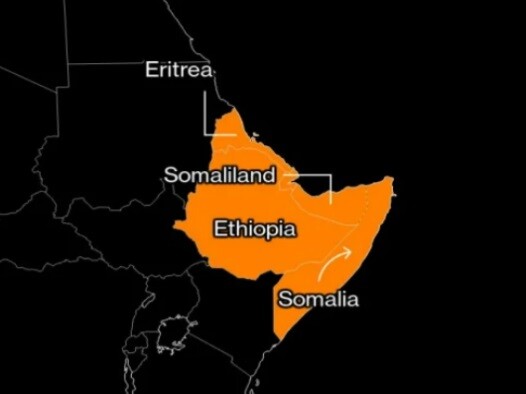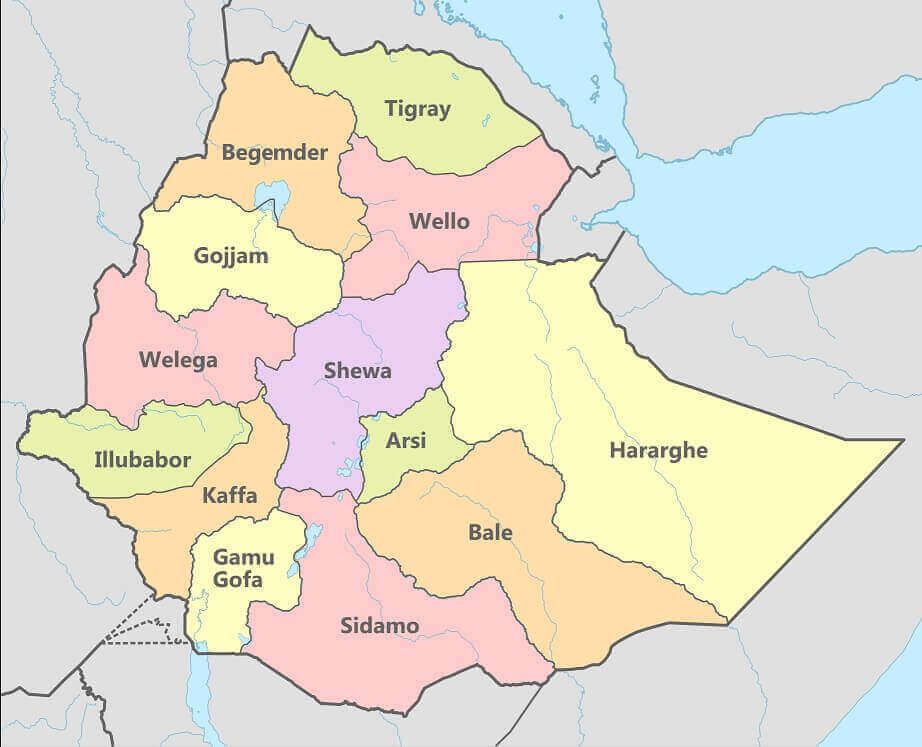 Simon Marks and David Herbling
Simon Marks and David Herbling
Ethiopia is currently reevaluating its decision to acknowledge the independence of Somaliland, as global pressure mounts to ease tensions in the region, sources familiar with the situation have revealed.
Ethiopia, a country without direct access to the sea, entered into a preliminary agreement with Somaliland in January. This agreement would establish Ethiopia as the first nation to acknowledge the sovereignty of the semi-autonomous region of Somalia. In exchange for this recognition, Ethiopia would be granted 50 years of access to the Gulf of Aden. The signing of this accord caused a significant reaction from neighboring countries. Somalia expressed its commitment to protecting its territorial integrity, while Egypt and other nations advised exercising caution.
Ethiopian Prime Minister Abiy Ahmed and his Kenyan counterpart, William Ruto, held talks last week in Nairobi where the matter was discussed. Abiy expressed his willingness to step back from the deal’s most controversial elements in an effort to restore relations with Somalia, said the people who asked not to be identified as they’re not authorized to discuss the matter publicly.
Ethiopian officials privately told foreign officials that the country may be willing to drop its recognition of Somaliland, according to five foreign officials who were briefed on Addis Ababa’s stance. Ruto also raised the matter in a meeting with Somalian President Hassan Sheikh, who was visiting Kenya at the same time as Abiy.
Ruto told Bloomberg in an interview in January that his administration was trying to “persuade Ethiopia” to consider other options beyond its demand for a port, though it’s unclear what those options are.
Ethiopia has yet to officially pull back from the deal with Somaliland, and Abiy remains keen on achieving his objective of attaining direct access to the coast, the people said.
Never miss an episode. Follow the Big Take podcast on iHeart, Apple Podcasts, Spotify or wherever you listen. Read the transcript.
Somaliland broke away from Somalia in 1991 after the eruption of a civil war. Since then, it’s been pushing for international recognition that would allow it to source foreign funding and aid. The deal with Ethiopia — long desperate for greater sea access — would take it a small step closer to achieving that aim.
Read More: Ethiopia Says Lack of Port Access Can Fuel Future Conflict
Neighboring countries and some of Ethiopia’s biggest donors have expressed concern that the deal — which Somalia has said is illegal and would represent an annexation of its territory — may spark conflict in an already volatile region.
Molly Phee, the US assistant secretary of state for African affairs, told reporters on a call last month that Ethiopia should seek a deal providing it with sea access with the federal authorities in Mogadishu and not officials in Somaliland. The US and United Nations have also said the agreement may allow the Islamist militant group al-Shabaab to exploit the situation for its recruitment.
“The region can ill afford more conflict,” Phee said.
Ethiopian, Kenyan and Somali government spokespeople didn’t respond to questions about the current status of the Somaliland agreement.
Mustafa Ahmed, ambassador-at-large for the Somaliland government, said his state and Ethiopia “remain committed to advancing the MoU into a final bilateral treaty.”
“Ethiopian access to the sea rests on them making a formal re-recognition of the State of Somaliland based on its 1960s borders and status,” he added.
Why Ethiopia’s Red Sea Access Bid Has Region On Edge: QuickTake
–With assistance from Mohammed Omar Ahmed
Bloomberg
















